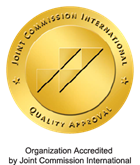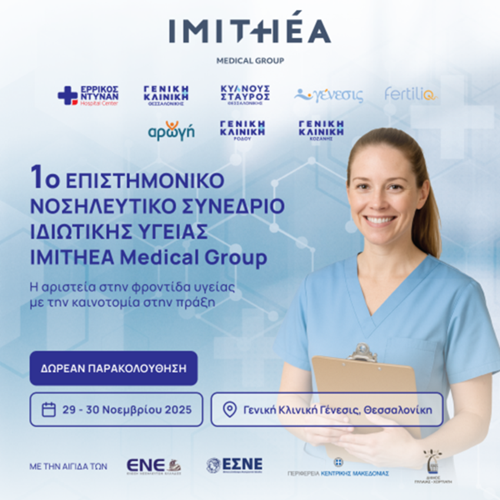A new milestone in the evolution of Henry Dunant Hospital Center is marked by the launch of its state-of-the-art Theranostics Nuclear Medicine Center, the first of its kind in Athens and the only one among private hospitals nationwide to provide theranostics: a fully integrated, personalized approach that combines precision diagnostics with pioneering therapeutic solutions in oncology, utilizing the most advanced technology available worldwide.
With the establishment of this center—officially named the Theranostics Nuclear Medicine Department—a new era begins in comprehensive cancer care. The center merges diagnostic imaging with targeted treatment through the application of radiopharmaceuticals. The term theranostics—derived from therapy and diagnostics—refers to the fusion of these two “phases” of medical care, allowing for more targeted and personalized treatments for patients, especially in oncology.
The Theranostics Nuclear Medicine Center, staffed by a leading team of specialists, is equipped with two key assets: the first digital PET/CT in a private hospital in Greece and a state-of-the-art SPECT/CT camera. With these next-generation imaging systems, combined with the use of all available radiopharmaceuticals approved in the Greek market—including Ga-68 from a Germanium-Gallium generator (with only five such units available nationwide)—and supported by AI-powered applications, the center achieves unparalleled diagnostic accuracy. Also, in cases where the conditions are met, our center is fully organized to conduct radioisotope treatments.
It already features two shielded inpatient rooms for radioiodine therapy in thyroid cancer patients, and with the addition of five specially designed treatment suites, it can now also provide treatments for neuroendocrine tumors, metastatic prostate cancer, and primary or metastatic liver cancer.
“Henry Dunant, a pioneer in cutting-edge technologies and in placing patients firmly at the center of care, has created the first fully integrated Theranostics Nuclear Medicine Center in Athens and the only one within the private healthcare sector. This initiative offers a comprehensive approach that not only improves patients’ quality of life but also advances a more personalized and effective healthcare experience,” stated Mr. Ioannis Koutsikos, Director of the new department, further highlighting that the weekly operation of the hospital’s Oncology Board promotes the close collaboration among physicians from different specialties and other healthcare professionals in developing comprehensive treatment plans on the one hand, and on the other helps manage patients correctly through their continuous monitoring throughout all stages of diagnosis and therapy.
On the new possibilities now available in cancer diagnostics and treatment, Mr. Ioannis Datseris, Nuclear Medicine Specialist and Scientific Advisor to the new Center, added: “Henry Dunant has placed into full operation a comprehensive Nuclear Medicine Center with the complete range of diagnostic and therapeutic capabilities offered by the rapid advancements of this specialty, thereby ensuring true precision medicine tailored to each patient.” Nuclear Medicine incorporates a significant part of innovation in biomedical sciences. It all started in 2001 with Positron Emission Tomography/Computed Tomography (PET/CT), which revolutionized the practice of diagnosing and monitoring oncology patients through the use of radioactive glucose (FDG). Since then, several other biomarkers have been introduced, enabling the imaging of critical functions and cellular-level changes. The first PET/CT scanners have been succeeded by five new generations. Today, these systems are fully digital and equipped with artificial intelligence capabilities. At the same time, pharmacological research has advanced to the point where the same biomarkers—or similar compounds—can be labeled with different radioisotopes that emit stronger energy, delivering therapeutic radiation that destroys cancer cells from within. In other words, a diagnostic agent becomes a therapeutic one. This led to the creation of the scientific field of Theranostics, which combines diagnostics and therapy.
All this is now a reality at Henry Dunant Hospital Center. Anticipating the enormous potential of this emerging field, the hospital has invested in two state-of-the-art systems: a SPECT/CT gamma camera and a digital PET/CT scanner—the first installed in a private hospital in Greece—equipped with artificial intelligence programs. It has allocated fully renovated facilities and attracted a highly experienced and distinguished scientific team. In daily practice, the center now performs the full range of available PET/CT examinations, scintigraphic scans, and theranostic treatments for thyroid cancer, neuroendocrine tumors, and prostate cancer. In addition, it has introduced PET/CT for the early diagnosis of Alzheimer’s disease.”
*In the photo: The core team of the Theranostics Nuclear Medicine Center. From right: Ioannis Koutsikos, Director; Evangelia Skoura, Deputy Director and Head of PET/CT; Ioannis Datseris, Scientific Advisor; Ioannis Papantoniou, Attending Physician.





